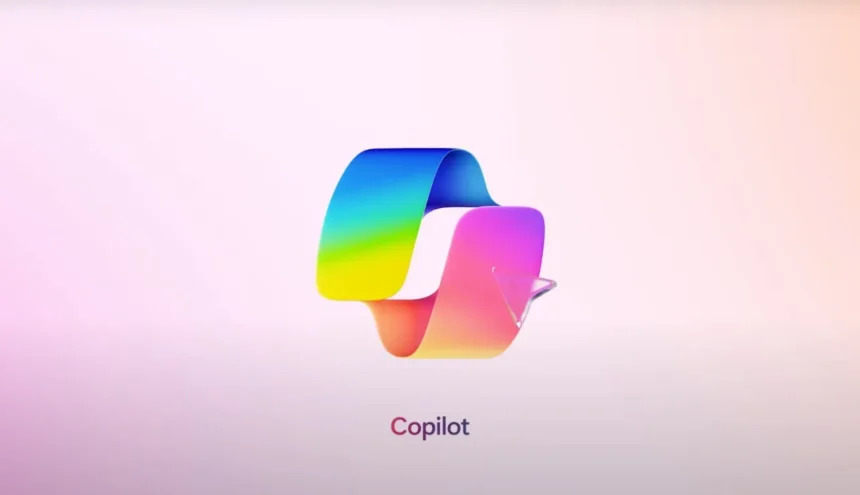Microsoft Copilot is redefining productivity with its advanced generative AI capabilities, seamlessly integrating into a wide array of Microsoft products and services. From enhancing email summarizations in Outlook to offering real-time transcriptions in Teams, Copilot is rapidly becoming an indispensable tool in the modern workspace.
Beyond its integration into traditional software, Copilot extends its capabilities to broader applications, including code generation through GitHub Copilot and serving as a versatile assistant within Windows and on the web. In this article, we’ll explore the various Microsoft Copilots, their unique functions, and the distinctions that set them apart.
What is Microsoft Copilot?
Microsoft Copilot, the rebranded evolution of Bing Chat, is more than just a search engine tool—it’s a multi-faceted AI assistant built into Windows 10, Windows 11, Microsoft Edge, and even accessible via mobile apps for Android and iOS. Some new PCs are equipped with a dedicated Copilot key, making it easier than ever to summon this AI-powered assistant.
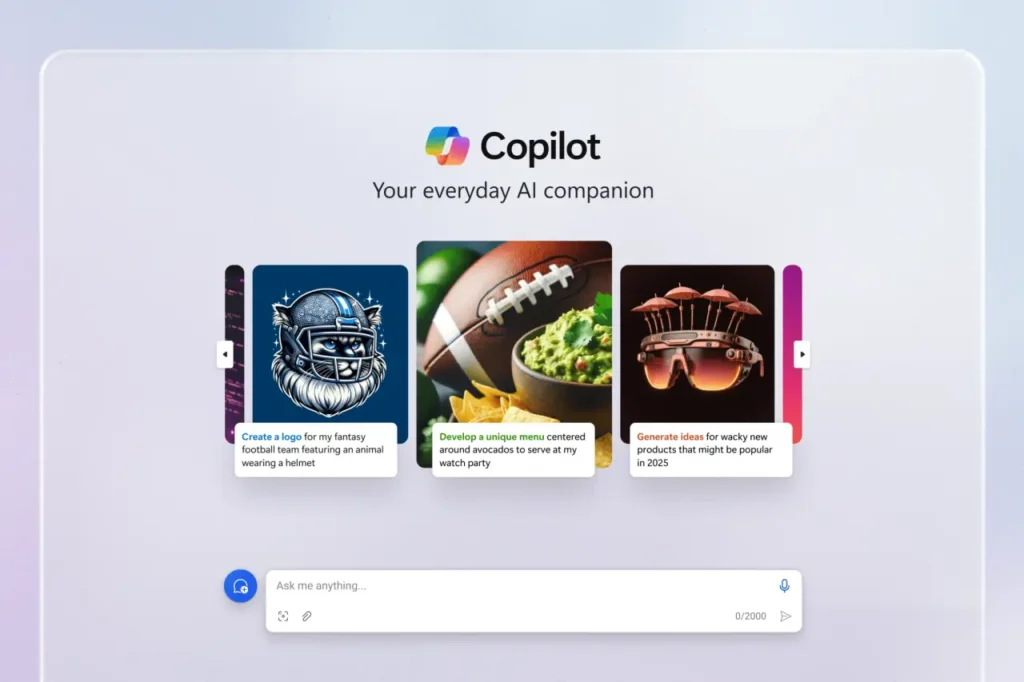
Powered by advanced versions of OpenAI’s models, Copilot can perform a myriad of tasks, from crafting poems and essays to translating languages and summarizing information from across the web. Unlike offline AI models, Copilot has the advantage of real-time web access, allowing it to pull up-to-date information through Bing, though it’s not immune to occasional errors.
Copilot’s capabilities extend to creative tasks as well. Leveraging Microsoft’s DALL-E 3-based Image Creator, Copilot can generate images from simple text prompts, while its integration with Suno’s AI music platform enables it to compose original songs. Whether you’re asking Copilot to “Create an image of a zebra” or “Generate a jazz song,” this AI assistant seamlessly brings your ideas to life.
Further enriching its utility, Copilot supports plug-ins for third-party apps and services. From meal planning with Instacart to booking travel with Kayak and making restaurant reservations through OpenTable, Copilot’s ecosystem is continuously expanding.
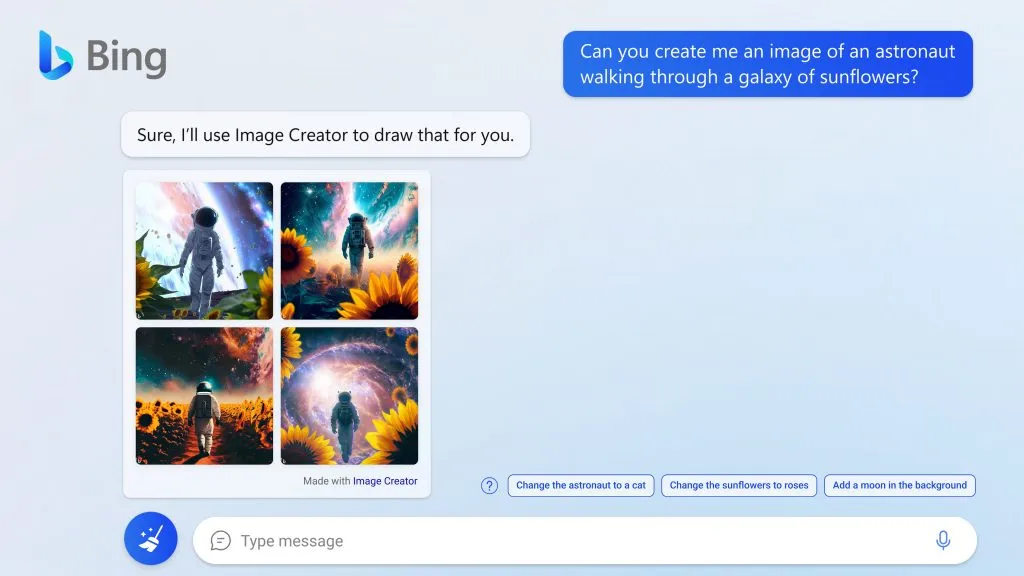
Control Your Windows Experience with Copilot
On Windows 11, Copilot isn’t just a helpful assistant—it’s a command center for your PC. With natural language commands, you can control settings like turning on battery saver, displaying your system’s IP address, and even emptying the recycle bin. This makes Copilot not just a tool for productivity, but a digital concierge that simplifies daily tasks.
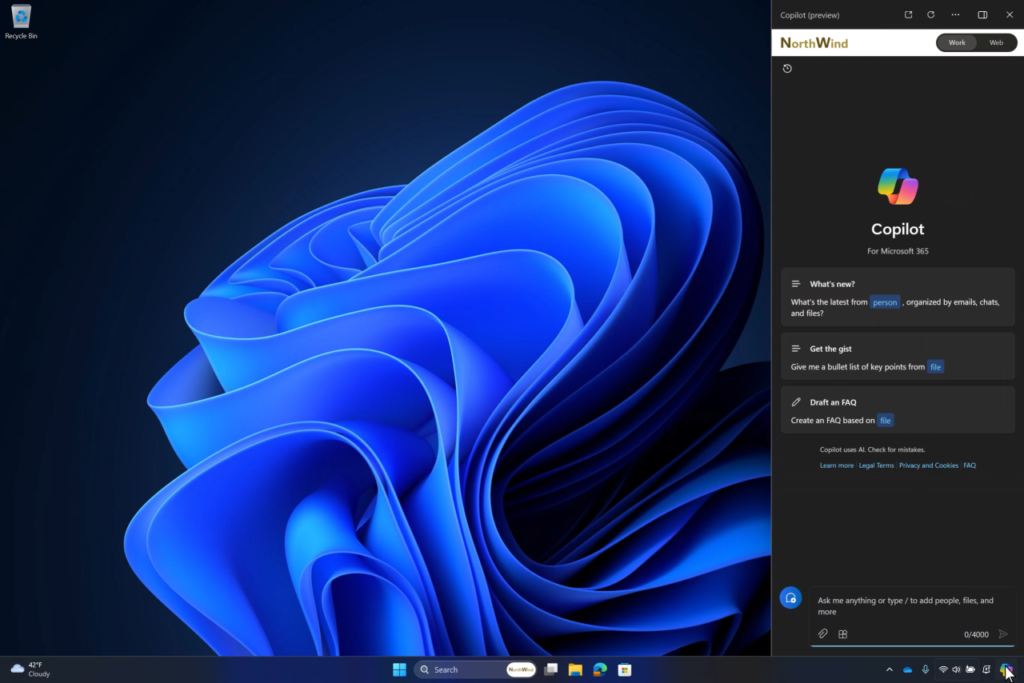
A key feature on Windows 11 is the toggle between “Work” and “Web” modes in Copilot. In “Work” mode, Copilot brings the full suite of Microsoft 365 capabilities right into your Windows interface, allowing seamless integration between your operating system and Microsoft’s productivity tools.
What is Copilot Pro?
For those seeking an even more powerful AI experience, Microsoft offers Copilot Pro, a premium version priced at $20 per month. Similar to other AI subscription plans like ChatGPT Plus, Copilot Pro offers several exclusive benefits.
Subscribers get priority access to the most advanced OpenAI models during peak times, ensuring quicker response times and access to features like higher-resolution images from Image Creator. Copilot Pro also enhances Microsoft 365 apps, enabling AI-driven functions across Word, Excel, PowerPoint, Outlook, and OneNote. In Word and OneNote, Copilot can write, edit, summarize, and generate text, while in Excel and PowerPoint, it can transform natural language prompts into complex visualizations and presentations.
For Microsoft 365 subscribers, these features are available across both desktop and web apps, though non-subscribers are limited to web versions. Additionally, Copilot Pro users enjoy 100 daily boosts for faster image generation and access to landscape formatting options.
However, it’s important to note that Copilot Pro doesn’t include Copilot in Teams, a feature exclusive to enterprise customers that offers real-time meeting summaries, action items, and more.
Copilot for Microsoft 365: AI Tailored for Business
Copilot for Microsoft 365 is a specialized suite of AI tools designed for enterprise use, priced at $30 per user per month. This version of Copilot is available exclusively to Microsoft 365 E3, E5, Business Standard, or Business Premium license holders and offers enhanced data protection and enterprise-grade features.
In addition to the capabilities offered by Copilot Pro, Copilot for Microsoft 365 includes tools like Microsoft 365 Chat, which aggregates data from across the Microsoft 365 suite to answer complex queries. In Excel, it can help format data, create graphs, and even guide users through creating formulas and macros, making it an invaluable tool for businesses.
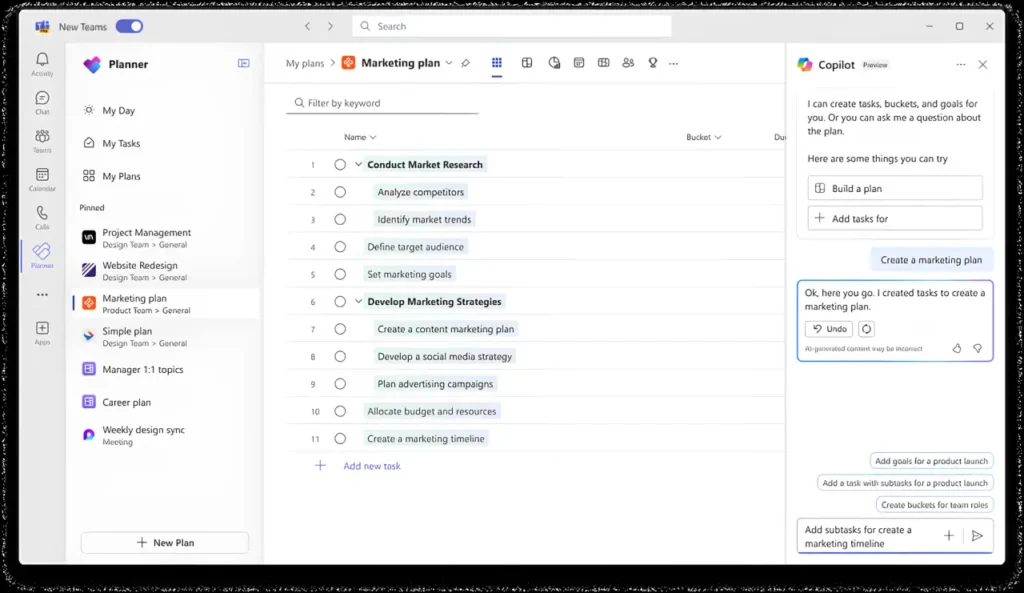
Beyond these core functionalities, Copilot for Microsoft 365 extends into specific business applications, such as:
- Copilot in Power Pages: Generates text, forms, chatbots, and web page layouts, and can create and edit images and site designs.
- Copilot for Sales: Assists in drafting customer emails and performing sales-related tasks, like sending meeting summaries.
- Copilot for Service: Provides AI-driven chat support for customer service, pulling from knowledge bases and case histories.
- Copilot for Azure and Security: Offers troubleshooting suggestions, security insights, and more, tailored to specific enterprise needs.
Not all of these tools come standard; some, like Copilot for Sales and Copilot for Service, require an additional fee.
Building Your Own AI with Copilot Studio
Copilot Studio offers businesses the ability to customize and extend Copilot for their specific needs. Through a user-friendly dashboard, companies can connect Copilot to their customer relationship management software, enterprise resource planning systems, and other databases. This allows for the creation of custom-tailored “copilots” that can be fine-tuned to specific datasets and workflows.
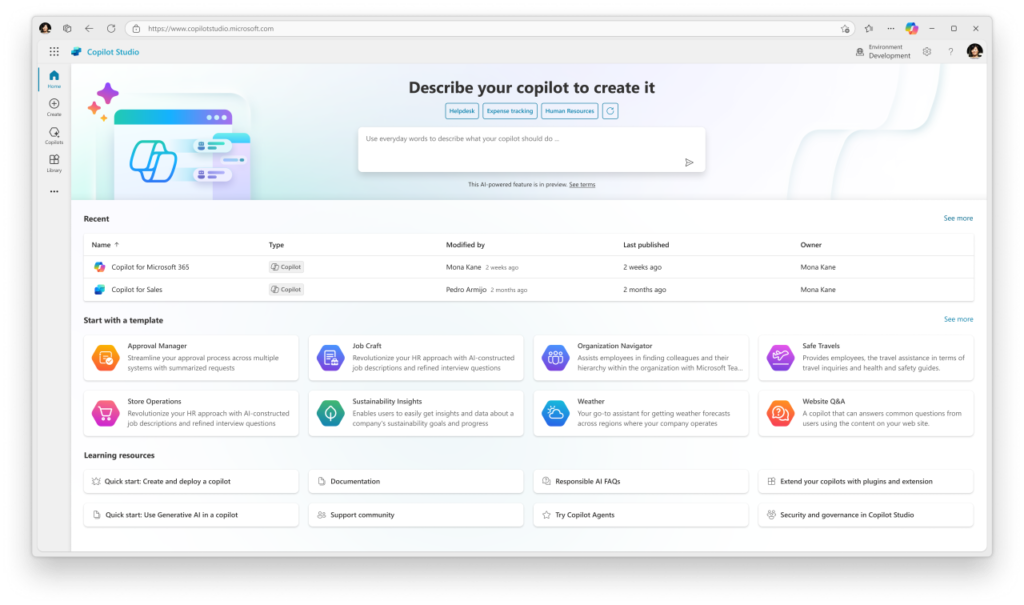
In Copilot Studio, businesses can also create “Copilot agents,” AI bots that learn from user interactions, navigate complex workflows, and even ask for help when faced with unfamiliar tasks. This opens up new possibilities for automating and streamlining business processes, making Copilot an even more powerful tool.
GitHub Copilot: AI for Coders
Distinct from other Microsoft Copilots, GitHub Copilot is a tool specifically designed for developers. Available as an extension for popular IDEs like Visual Studio Code, Visual Studio, and Neovim, GitHub Copilot can generate code in real-time, offering suggestions based on billions of lines of code across numerous programming languages.
GitHub Copilot can also translate code into natural language descriptions, making it easier for developers to understand and debug their code. For businesses, GitHub Copilot offers added features like license management, IP indemnity, and the ability to customize the AI for their specific codebases.
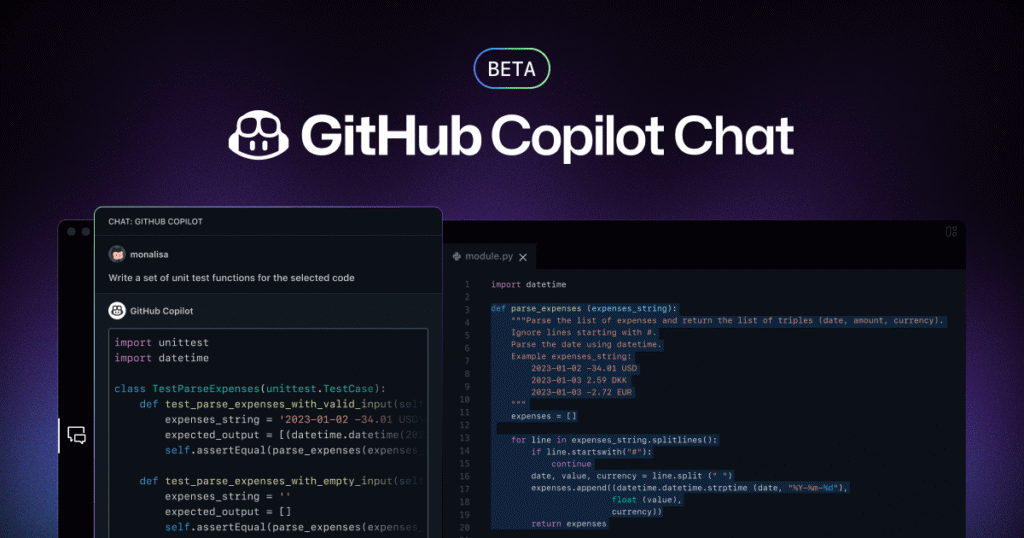
In April, GitHub launched Copilot Workspace, an AI-powered environment that assists developers throughout the software development lifecycle, from brainstorming and planning to building, testing, and deployment.
The Challenges and Controversies of Copilot
While Microsoft Copilot offers groundbreaking capabilities, it’s not without its challenges. Like all generative AI models, Copilot can sometimes hallucinate or make mistakes, such as incorrectly summarizing meetings or generating insecure code. These issues underscore the need for careful oversight and human intervention when using Copilot in critical applications.
Moreover, Copilot’s use of publicly available data for training raises significant ethical and legal questions. While Microsoft argues that fair use protects its practices, ongoing lawsuits and debates around IP rights highlight the unresolved nature of this issue. Microsoft does offer some protections for its customers, but the broader ethical concerns remain a point of contention.
Conclusion
Microsoft Copilot is at the forefront of the AI-driven transformation in productivity, offering tools that are as diverse as they are powerful. Whether you’re a business professional, a developer, or just someone looking to streamline everyday tasks, there’s likely a Copilot that fits your needs.
As Microsoft continues to expand and refine its Copilot offerings, the potential for AI to enhance and augment human capabilities will only grow. However, with this power comes responsibility, and users must remain vigilant to the challenges and ethical implications that accompany these technologies.
Whether you’re embracing Copilot today or watching its evolution from the sidelines, one thing is clear: Microsoft’s AI ambitions are reshaping the future of work.



